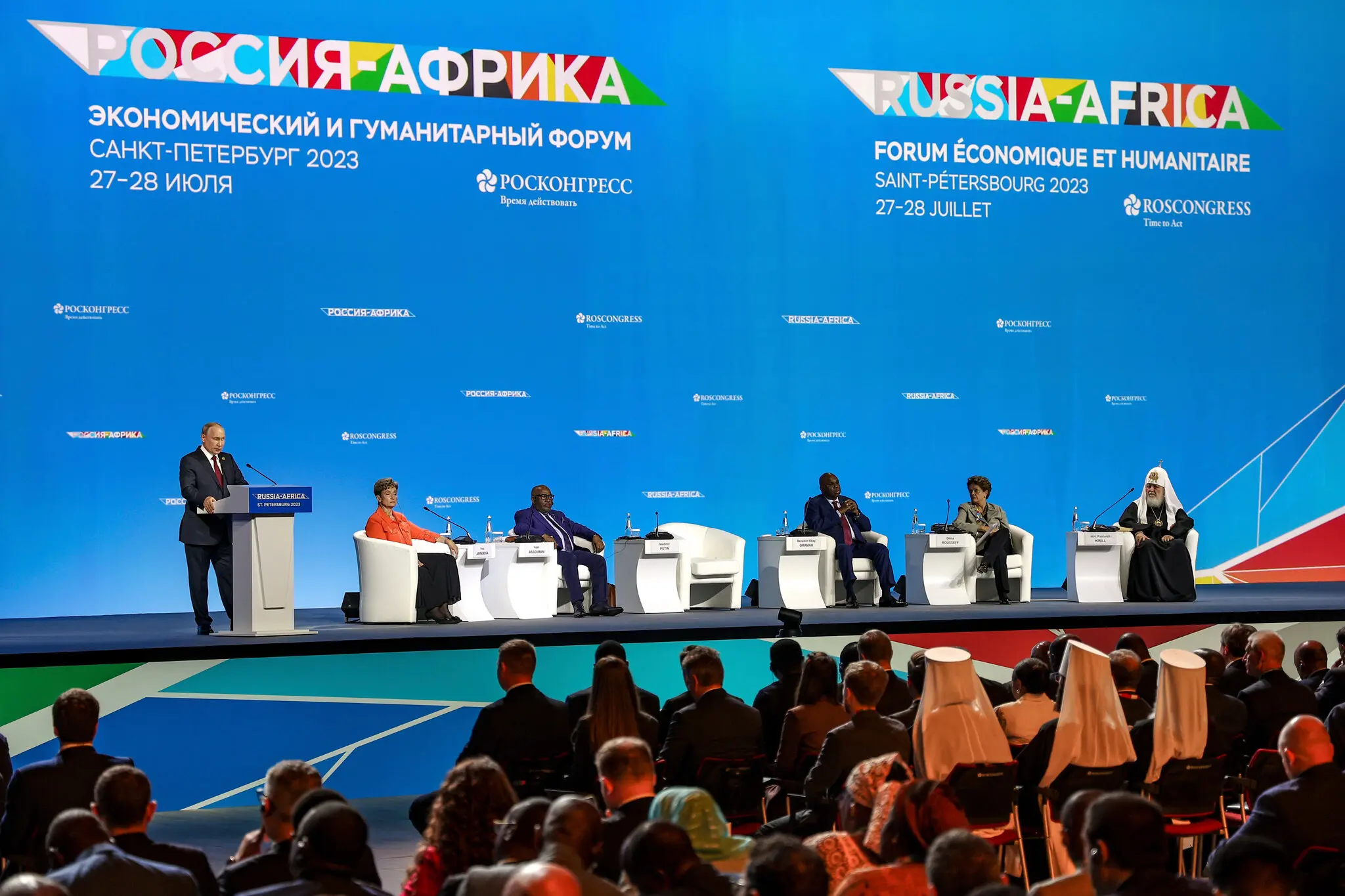Russia has expressed keen interest in strengthening collaboration with African nations in the energy sector.
During the Russia-Africa Summit held in St. Petersburg, President Vladimir Putin announced that more than 30 energy projects, with a combined capacity of approximately 3.7 gigawatts, are currently in progress with various African countries.
“Russia’s RusHydro offers a vast scope of services to African partners, ranging from design and equipment supply to modernization and construction of new turnkey power generating facilities,” Putin said on Thursday.
“Russian companies Gazprom, Rosneft, LUKOIL and Zarubezhneft are involved in developing oil and gas fields in Algeria, Egypt, Cameroon, Nigeria and the Republic of the Congo.”
The energy cooperation between Russia and Africa is built on extensive experience. Soviet and Russian specialists have been involved in designing and constructing significant power generation facilities in Angola, Egypt, Ethiopia, and other African countries. According to President Putin, these facilities have a total capacity of 4.6 gigawatts, accounting for 25 percent of Africa's hydropower capacity.
Russia deepened ties with African countries following the sanctions imposed on it by the United States in 2014.
The Russia-Africa Summit has been an important platform for promoting Russian interests on the continent. In 2019, the first summit held in Sochi brought together government and business officials representing 54 African nations.
The forum was co-chaired by Russia’s Putin and Egypt President Abdel Fattah El-Sisi, who previously served as chairman of the African Union.
However, the second Russia-Africa Summit experienced a lower turnout compared to the previous summit. Reports suggest that just 17 African leaders travelled, which is less than one third of African leaders who were invited to the 2019 summit.
The two-day event that kicked off on July 27 follows Moscow's recent decision to withdraw from the Black Sea grain deal brokered between Ukraine and Russia by Türkiye and the United Nations (UN) on July 22, 2022. The deal allowed the resumption of Ukrainian grain exports through the Black Sea ports that were blocked since Russia launched what it called a “special military operation” on February 24, 2022.
With the decision, Moscow again sparked fears over global food supplies, particularly in parts of Africa that are reliant on exports from Russia and Ukraine.
Many African countries rely heavily on Russia and Ukraine for their grain imports. Between 90-100 percent of the wheat for Somalia and Eritrea needs comes from the two countries.
At the summit, many African leaders refrained from commenting on the grain deal. However, Kenyan President William Ruto, who did not attend the summit, criticized Moscow's decision, describing it as a "stab in the back of global food security prices."







 President Ilham Aliyev shed light on the evolving contours of the peace process with Armenia during an international conference in Baku this week. ...
President Ilham Aliyev shed light on the evolving contours of the peace process with Armenia during an international conference in Baku this week. ...
 Azerbaijan and Armenia started the process of demarcation of their border on Tuesday, with the installation of the first border markers based on ge...
Azerbaijan and Armenia started the process of demarcation of their border on Tuesday, with the installation of the first border markers based on ge...
 President Aliyev emphasized the critical role of the North-South Transport Corridor in fostering transport cooperation between Azerbaijan and Russi...
President Aliyev emphasized the critical role of the North-South Transport Corridor in fostering transport cooperation between Azerbaijan and Russi...
 Iran and Pakistan have signed eight cooperation documents in various fields, and agreed to strengthen ties to fight terrorism in the region.
Iran and Pakistan have signed eight cooperation documents in various fields, and agreed to strengthen ties to fight terrorism in the region.
 As the conflict between Ukraine and Russia escalates, the strategic importance of Kharkiv, Ukraine's second-largest city, has come sharply into focus.
As the conflict between Ukraine and Russia escalates, the strategic importance of Kharkiv, Ukraine's second-largest city, has come sharply into focus.
 Iranian President Ebrahim Raisi expressed Tehran’s readiness to participate in significant development projects in Sri Lanka during the inauguratio...
Iranian President Ebrahim Raisi expressed Tehran’s readiness to participate in significant development projects in Sri Lanka during the inauguratio...



